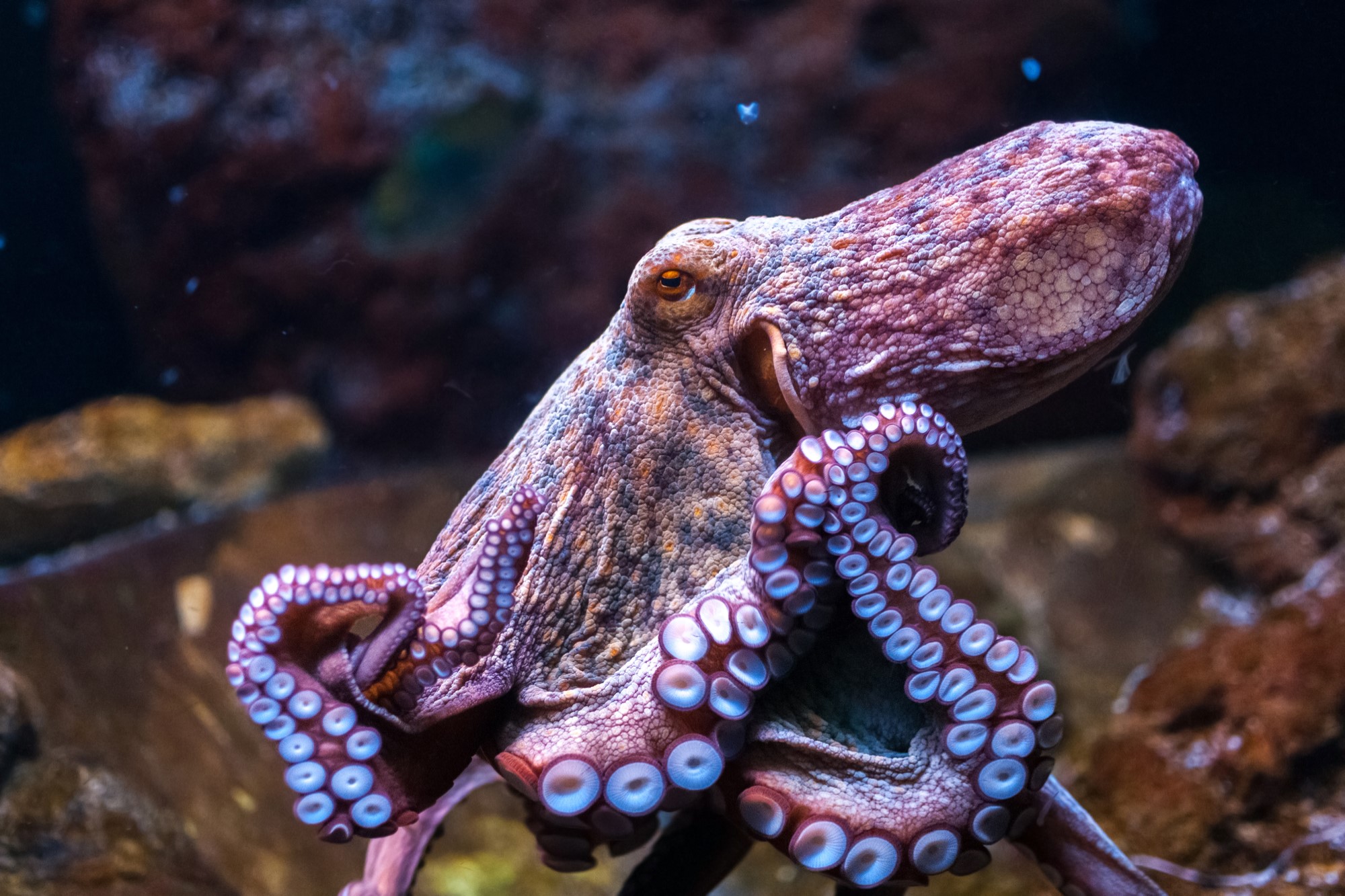The Feelings of Fish

“It’s okay to eat fish, ‘cause they don’t have any feelings.”
So sang Nirvana frontman Kurt Cobain in the haunting “Something in the Way.” Here’s the problem, however: according to recent research, fish do have feelings – and this stands to create all sorts of concerns for how humans treat these animals.
A study published just last month shows that fish are able to pass the Mirror Test – being capable of recognizing themselves in mirror reflections and photographs. This test is an important indicator of an advanced level of cognitive capabilities in both human and non-human animals, and sees fish join an elite club previously only occupied by humans, dolphins, elephants, and some great apes. This latest study joins a mounting body of research showing that fish do, in fact, have a much higher level of cognition than we previously thought. For one, they don’t have a three-second memory. In fact, they tend to remember things for a period of about five months. Further, a 2019 study showed that fish experience pain in much the same way as humans; exhibiting accelerated ventilation rates and showing an ability to avoid pain-inducing stimuli. They even rub areas of their bodies that have suffered pain – much as we do a stubbed toe.
So what do these latest developments mean for the ethical treatment of fish? Why might features such as self-recognition and the ability to feel pain be relevant in considering what we can permissibly do to fish?
A few months ago, I considered a similar problem relating to our treatment of insects. Recent research had suggested that – contrary to our traditional understanding – insects might be capable of experiencing pain. I explained how the ability to feel pain (and its corollary, pleasure) is, for some ethicists, all that is required for a living being to have interests. How so? Well, if something can experience pain, then it has an interest in avoiding pain. In fact, the fish in the study cited above showed precisely this behavior – avoiding areas of their tanks where they received electric shocks, even where those areas were previously associated with feeding.
Suppose, then, that I want to go for a spot of recreational “catch-and-release” fishing. Is it wrong for me to do so?
One starting point might be to note that even if fish can experience pain (and have a corresponding interest in avoiding pain) the amount of suffering caused by a single barbless hook through the mouth is relatively small. Suppose that, for a fish, this experience is roughly about as painful as it would be for a human to be pierced in the back of the hand with a sharp needle. This might seem acceptable. But would we think it morally permissible for someone to go around stabbing others in this way for purely recreational purposes? If our answer is “no,” then we have a problem.
The reason why this is problematic comes down to the principle of equality.
Previously, I discussed how when we talk of the equality of humans, we aren’t generally claiming that all humans are equal, nor that they should be equal. Rather, equality is taken as a prescription that the interests of all humans should be given equal consideration. This is the principle that underpins the wrongness of sexism, racism, and other forms of bigotry. It’s why it’s morally impermissible to prioritize one person’s interests in, say, being given a promotion based merely on their gender or skin color. Instead, the interests of these individuals need to be considered equally.
So, if two individuals have an interest in not experiencing pain, then those interests have to be treated equally. And if we believe that inflicting X amount of pain on one individual is morally impermissible, then we must believe that inflicting that same amount of pain on another individual is just as wrong. Further, we’re not permitted to make a distinction based purely on the species of the individual. Why? Because doing so would violate the principle of equality in the same way that sexism or racism does. In this case, however, it would be speciesist.
As with the ethical treatment of insects, we might consider discounting – or disqualifying altogether – the suffering of fish on the basis that they aren’t as intelligent as humans. But this contravenes the very same principle of equality.
Consider how we think about humans: Do we believe it is more morally permissible to cause pain and suffering to those who are less intelligent? Do we allow harm to very young children on the basis that they do not have the same cognitive faculties as fully developed adults?
Clearly not. So we must take the same approach to animals like fish.
Given all of this, it seems that if fish do truly experience pain in a way that is similar to humans, then something like recreational catch-and-release fishing becomes morally impermissible (assuming, of course, that we’re not willing to endorse harming humans in the same way for fun). But what if the harm caused to these fish wasn’t merely recreational, but was instead done for survival? Would it be permissible for us to catch-and-kill fish for this purpose?
This is where the waters become a little murky. Peter Singer – the proponent of the approach taken above – is a Utilitarian, meaning that he believes the morally right thing to do is that which maximizes pleasure (or minimizes pain). Thus, if a family was in desperate need of sustenance, the pain and suffering inflicted on a fish by catching and killing it for dinner might be outweighed by the good of the family’s continued survival. But here’s the thing: for many of us, this will never be the case. Most of us in developed nations have ample sources of sustenance that do not require the suffering of fish – or any animal for that matter. This is precisely why Singer argues so forcefully in favor of veganism.
Ultimately, however, all of this comes back to the question of whether fish do truly experience pain in a morally relevant way. And while some will take these latest studies as clear evidence that they do, others will remain skeptical that the kind of thing being experienced by fish (and insects and other animals) is fundamentally different to that experienced by humans. And that might turn out to be the case. I have, however, previously noted our very poor track record of understanding pain in other living beings (even infant humans). Given this, it would seem that caution is in order – and that the best approach might be to refrain from recreationally harming an animal that may turn out to experience pain in a way similar to humans.




